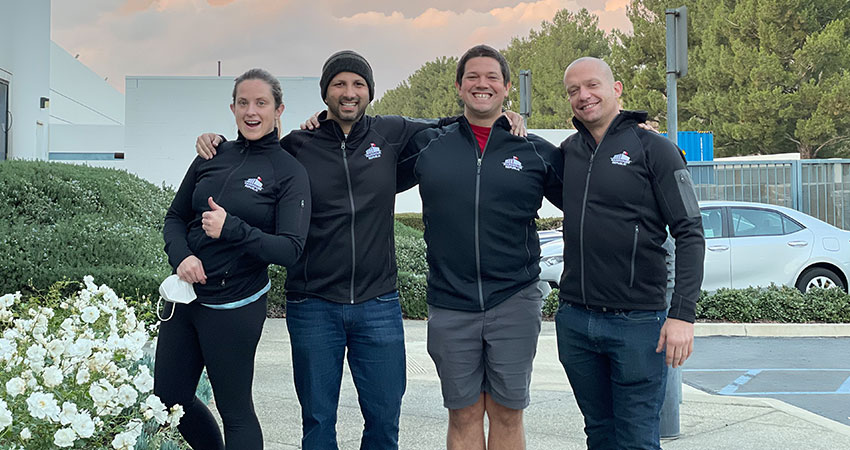In 2018, Amazon 3P seller Mark Taylor found himself with a problem: an excess stock of 7,000 etched wine glasses sourced from China that didn’t move during the previous holiday, racking up long-term storage fees in an FBA facility.
Taylor didn’t know it at the time, but his dilemma was about to be parlayed into a new business opportunity.
Through a friend, Taylor found someone with 8,000 square feet of warehouse space in southern California who could fulfill the product for him, without the debilitating “aged inventory surcharges,” in FBA’s parlance. In his case, it ran to the tune of $650 per pallet, per month.
As Amazon is in the business of turning and not storing goods, the company takes this financial disincentive very seriously to address slow-moving goods and overstocked sellers. Even stranded inventory gets dinged.
Seeing how he was saving money this way for his Amazon 3P seller business, and flowing it to the bottom line, Taylor followed a hunch. He spent about $400 to advertise on Reddit and attract other FBA sellers, using a portion of the space he didn’t occupy.
“We got two customers doing $3,000 to $4,000 a month in revenue, and we realized, there’s something here, it’s a good small test,” Taylor said. “We went from a sublease in Riverside, CA to taking up 5,000 square feet of a 12,000-square-foot building in Rancho Cucamonga. Almost immediately we filled it up, and within three to six months, we took the entire 12,000 square feet.”
Thus, Taylor’s 3PL startup, Warehouse Republic, was born. With a natural focus on Amazon 3P sellers, the company now operates facilities in Ontario, CA and Reedsville, NC, and is eyeing the Dallas-Fort Worth area next. Taylor said his experience as a seller, knowing the network inside and out, gives him an edge and allows for a consultative approach.
“Eventually, we can get to a full two-day network with five locations in the U.S.,” Taylor said. “Amazon has gotten very aggressive in same day; we’re not interested in that.”
The fledgling business almost got swamped in 2020, when the massive runup in ecommerce led to overselling Warehouse Republic’s space in California, with overflow volume transferred to a nearby sublease. Taylor said it took six months to “right the ship,” shedding some sellers that weren’t a fit and getting back to a manageable order flow.
After things settled down there, Warehouse Republic expanded to the North Carolina facility in October 2021. There, the focus is mainly on handling reverse logistics as well as so-called “removals” when sellers have their goods taken out of FBA and shipped to Taylor’s facility for fulfillment.
“With removals, we get varying sizes of boxes and quantities,” Taylor said. “We receive the orders and standardize cartons. It’s very labor intensive. They take up so much room that it doesn’t make sense in California, with space at such a premium.”
While the majority of his customers are Amazon sellers, many are multichannel, taking orders from their own sites as well as storefronts on Shopify, Magento and WooCommerce. “Others like Bed Bath & Beyond, but almost all have some kind of presence on Amazon,” he said. “Walmart is the second-most common marketplace.”
Customers range from a Southwest Airlines pilot and his wife, who have enlisted their kids to work and learn through their ecommerce business, to more sophisticated operations. “Others are very professional, running their own R&D and designing their own goods,” Taylor said. “We’ve got customers all across home goods, baby, supplements and lights for UV exposure. Typically, we don’t deal with hazmat stuff, it’s a different set of protocols. Or pet food or cement. It’s messy if the bag rips.”
Taylor’s status as an Amazon 3P seller gives him an inside line on announcements from Seller Central and he knows all the ins and outs. “We’re aware of the aware Amazon ecosystem in a way most are not,” he said. “If an order is going to this location, we know it goes to this FC, so we can do a test shipment to see how they handle it. We know best practices from both a seller and a warehouse perspective.”
As for those etched wine glasses that launched the whole affair, Taylor said they’re still listed on Amazon. “To be an effective seller in a place like that, you really need to be into PPC (pay-per-click advertising) and be sure your inventory is consistent,” he said. “We’re in a weird time. With importing from China and shipping costs increased 10x, we’re start losing our ability to make a good margin on the product. Basically, we’re selling our own stuff until the inventory runs out.”

